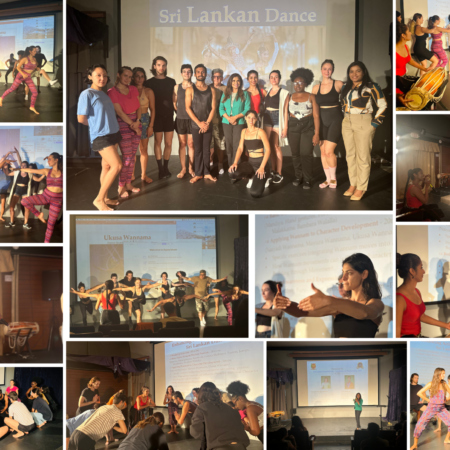A Toronto woman ordered out of Canada for being a self-declared member of the LTTE had argued the only evidence against her is her own past claims, which she says are not credible, the National Post reported on Thursday.
It said Canada’s Immigration and Refugee Board, the Minister of Public Safety and the Federal Court of Canada, however, had rejected her revision of her past in Sri Lanka during the war.
Jayasiri Puvanenthiram was first declared inadmissible to Canada in 2004 for being a member of the Liberation Tigers of Tamil Eelam (LTTE).
She has doggedly fought to remain in Canada, fighting appeals and pleas that have allowed her an additional 12 years in this country with her husband and two children.She said her family urgently needs her in Canada.
Puvanenthiram is a caregiver to her elderly and ill parents, her youngest son who is a Canadian citizen and depends on her because of chronic medical problems. Her eldest son has learning and development issues and her husband has health problems that may require surgery.
When Puvanenthiram first arrived in Canada in 2002, however, she seemed to be in a different space.
She told border agents she had been a voluntary member of the LTTE, an outlawed terrorist group in Canada. It was the same account she earlier gave German authorities, when she lived there from 1998 to 2002 after leaving Sri Lanka.
She originally said she started working for the student wing of the LTTE in 1992 before voluntarily joining the LTTE proper in 1993.
Puvanenthiram said she attended to injured persons until 1994, and had a year of basic training in self-defence by the LTTE. By 1995, her duties included digging bunkers, transporting injured people and assisting in hospitals.
When government forces attacked her LTTE camp she moved to another located in Kilinochchi, where she stayed for another three years.
At the LTTE’s Kilinochchi camp she received weapons training from 1995 to 1998 before asking permission to be excused due to poor health.
Her request, she told German authorities, was denied. When she made her new refugee claim in Canada, all of that changed. She told the IRB she did not voluntarily join or even support the LTTE and that she was forced to assist the group and only did so under duress.
She said that between 1993 and 1995, the LTTE threatened her 10 to 12 times to recruit her. She told the IRB at her admissibility hearing that she didn’t know anything about the student wing of the group; had never received weapons or self-defence training; never served in the Kilinochchi camp; and never sought permission to leave for health reasons.
Puvanenthiram argued there is no evidence against her — except her own words, which were lies. She said she fabricated the account of LTTE involvement and the German authorities did not believe her account. Even if it were true, she argued, it is not credible because it is unsupported by other information.
The IRB said her first account is the most credible one and concluded there were reasonable grounds to believe she had been a willing member of the LTTE and, as such, inadmissible to Canada.
Thus began her series of appeals and applications. Her legal fight, in fact, outlived the warthat ended in 2009.
She had an appeal bid to the Federal Court rejected; she applied for a Pre-Removal Risk Assessment (PRAA) but it cleared her for a safe return to Sri Lanka, a decision she also unsuccessfully tried to appeal; she next lost a bid to defer her removal and appealed that decision to the Federal Court; and she sought to have all PRAAs declared void.
She then sought residence in Canada on humanitarian and compassionate grounds in 2005, which was refused in 2008. She appealed that decision to the Federal Court as well, finally seeing some success, when a judge ordered her application to be reconsidered.
She also applied for special relief from the minister of public safety. Her request was refused, the minister saying she failed to establish that her presence in Canada would not be detrimental to the national interest.
Puvanenthiram appealed that decision as well, leading to the most recent decision. Justice Richard Bell dismissed her appeal in a decision released this month, saying the minister’s decision “was justified, transparent and intelligible, and was within the range of possible, acceptable outcomes.” Bell raised the likelihood this will not end her fight.
Puvanenthiram may be entitled to request a new Pre-Removal Risk Assessment, and that would bring a decision that could be appealed, again, to the Federal Court.






















